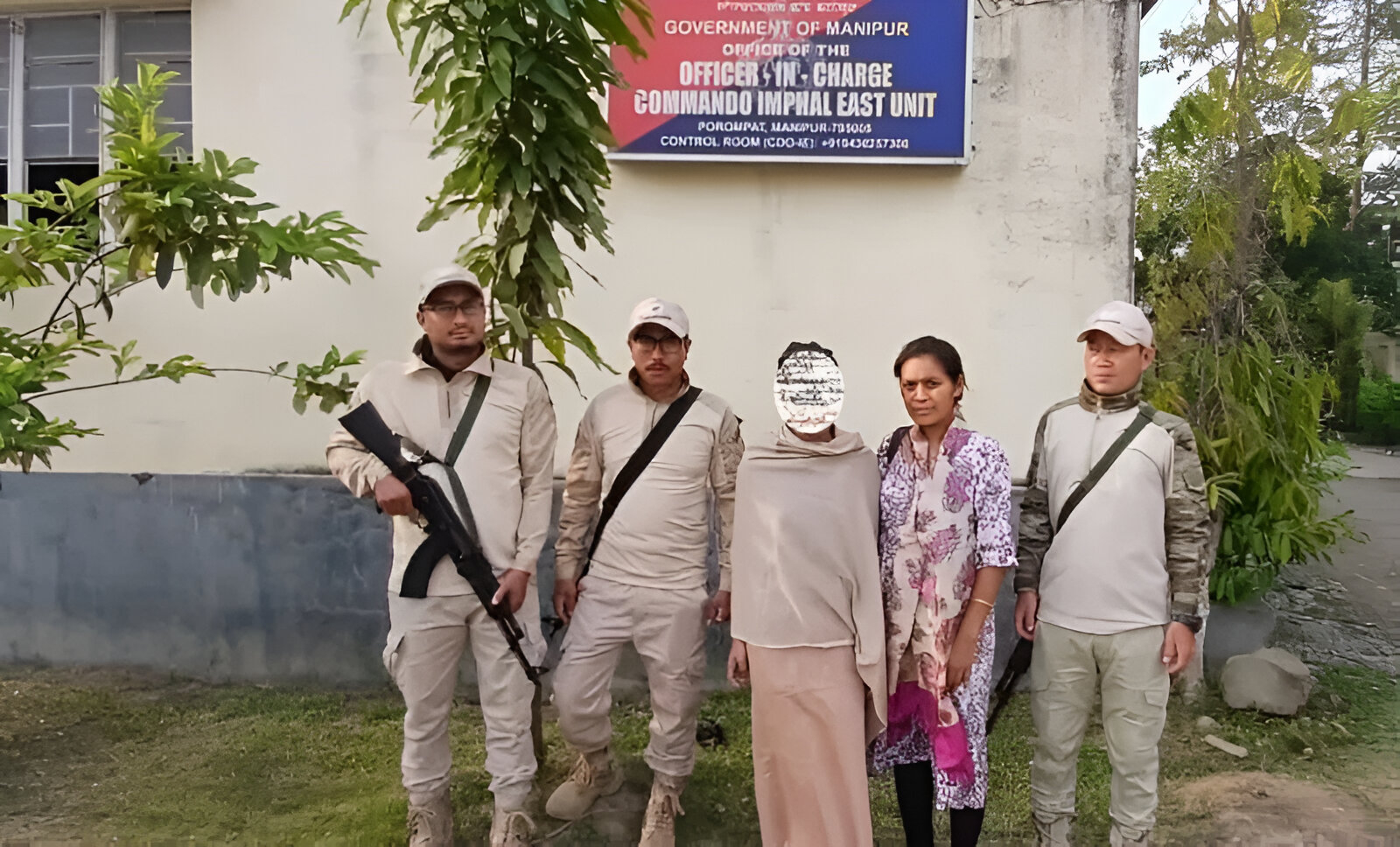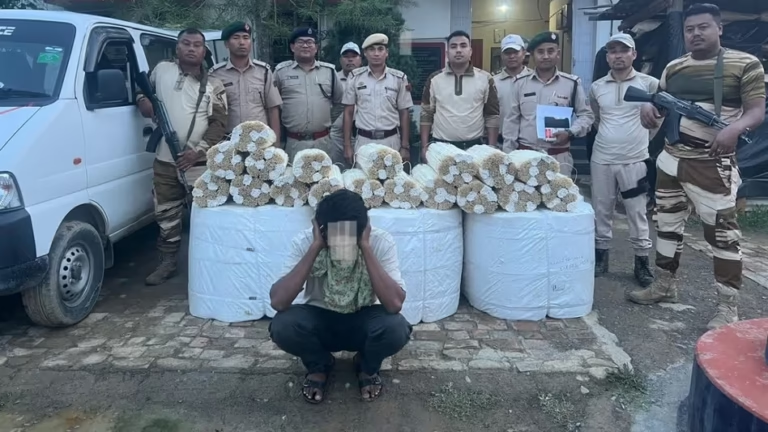Manipur Police Arrest Two Women for Militant-Linked Extortion
News Summary
On April 23, 2025, the Anti-Extortion Unit of the Manipur Police apprehended two women involved in extortion activities linked to valley-based militant groups. The arrests took place in Imphal West and Imphal East districts. Investigations revealed that these women were recruited by banned outfits to collect monetary demands as part of their preliminary duties before undergoing military training. Authorities expressed concern over the growing trend of using female recruits in such illegal activities, particularly targeting women from poor family backgrounds.
Understanding the Arrests: A Closer Look
The recent arrests of two women in Manipur for militant-linked extortion activities have shed light on a concerning trend in the region. The Anti-Extortion Unit of the Manipur Police apprehended 20-year-old Tongbram Dolly Devi at Lamphel Super Market in Imphal West. Devi, an activist of the banned Kangleipak Communist Party (Nongdrenkhomba), was allegedly involved in extorting money.
In a separate operation, 40-year-old Keisham Sana Leima, also known as Tamphasana or Lingjel, was arrested in Khundrakpam, Imphal East. Leima is reportedly a cadre of the People’s Revolutionary Party of Kangleikai – Progressive. Both women were reportedly tasked with collecting monetary demands as part of their preliminary duties before undergoing military training.
The Role of Women in Militant Activities
The involvement of women in militant activities, particularly in extortion operations, is a growing concern in Manipur. Investigations revealed that many valley-based militant groups in the state have been recruiting women, especially from poor family backgrounds, for extortion activities. These women are often tasked with collecting monetary demands as part of their preliminary duties before undergoing military training.
The use of women in such roles complicates efforts to curb the state’s extortion networks. Authorities have expressed concern over this trend, highlighting the need for targeted interventions to prevent the exploitation of vulnerable individuals by militant groups.
Law Enforcement’s Response
The Manipur Police have been actively working to dismantle extortion networks linked to militant groups. The recent arrests are part of a broader effort to curb illegal activities and maintain law and order in the region. Authorities are focusing on identifying and apprehending individuals involved in such operations, regardless of gender, to ensure the safety and security of the public.
The police have also been conducting awareness campaigns to educate the public about the dangers of involvement in militant activities and the legal consequences of such actions. Community engagement and cooperation are crucial in these efforts, as local support can aid in identifying and preventing such activities.
Community’s Role in Combating Extortion
Community involvement is vital in the fight against extortion and militant activities. Residents are encouraged to report suspicious activities and cooperate with law enforcement agencies. By fostering a sense of collective responsibility, communities can play a significant role in preventing the spread of illegal activities and ensuring a safer environment for all.
Educational programs and vocational training can also provide alternative opportunities for individuals who might otherwise be vulnerable to recruitment by militant groups. Empowering communities through education and economic development is a long-term strategy to reduce the appeal of such activities.
Conclusion
The arrests of two women for militant-linked extortion in Manipur highlight a troubling trend of increasing female involvement in such activities. Law enforcement agencies are taking proactive measures to address this issue, but community engagement and support are essential for long-term success. By working together, authorities and residents can combat the influence of militant groups and create a safer, more secure environment for all.
FAQs
Q1: What led to the arrest of the two women in Manipur?
A1: The women were arrested for their involvement in extortion activities linked to valley-based militant groups. They were reportedly tasked with collecting monetary demands as part of their preliminary duties before undergoing military training.
Q2: Why are militant groups recruiting women for extortion activities?
A2: Militant groups are recruiting women, particularly from poor family backgrounds, for extortion activities as a strategy to expand their operations and exploit vulnerable individuals.
Q3: What steps are law enforcement agencies taking to address this issue?
A3: Law enforcement agencies are actively working to dismantle extortion networks, conducting arrests, raising public awareness, and encouraging community cooperation to prevent such activities.
Q4: How can communities help in combating militant-linked extortion?
A4: Communities can assist by reporting suspicious activities, participating in awareness programs, and supporting educational and economic initiatives that provide alternatives to involvement in militant activities.
Q5: What are the long-term strategies to prevent recruitment by militant groups?
A5: Long-term strategies include educational programs, vocational training, economic development, and community engagement to empower individuals and reduce the appeal of militant involvement.


